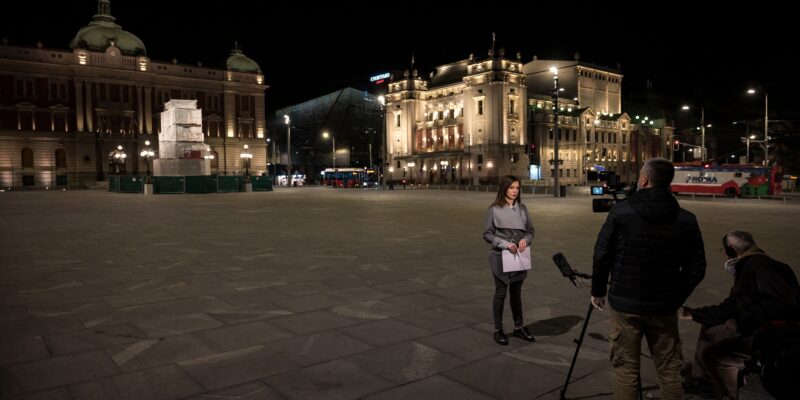Journalists fight for decent conditions and media freedom in pandemic times

There can be no media freedom if journalists cannot work in decent conditions. 2020 has been a challenging year for many people from across all walks of life. This is particularly so for essential workers such as journalists. Across Europe, working conditions for journalists have declined drastically due to the Covid-19 pandemic. Many have lost their jobs while others have put their health at risk reporting from the frontline of the health crisis without adequate safety measures and equipment. Some have to adapt quickly to working from home without proper equipment and support of childcare.
Thisreport, produced by the European Federation of Journalists (EFJ) together with its affiliates in South East Europe and Turkey, highlights the challenges faced by journalists in South East Europe (Albania, Montenegro, North Macedonia, Kosovo, Serbia) and Turkey during the Covid-19 pandemic. It shows that the pandemic led to a serious setback in the improvement of journalists’ labour rights and media freedom gained by journalists’ unions and associations in these countries.
Media freedom and labour rights violations are on the rise due to lockdown and security measures. It has drained the little resources of these journalists’ organisations setting a bleak future for the working conditions of journalists and media freedom. Nevertheless, these journalists’ organisations have played an important role by pulling their resources to ensure the safety of journalists and provide personal protective equipment, offer counselling, and defend media freedom and the rights of journalists to decent working conditions during this challenging period.
It is worth noting that the thirst of citizens to rely on journalists to provide accurate and unbiased information has grown ever more. There is a growing sense of solidarity among journalists, journalists’ organisations and civil society organisations across the region and in Europe.
This report received the financial supported of the European Union and the UNESCO, as part of the “Building Trust in Media in South East Europe and Turkey” project.











